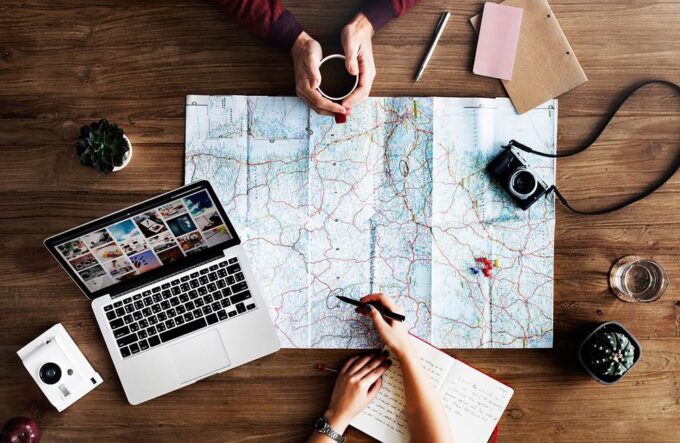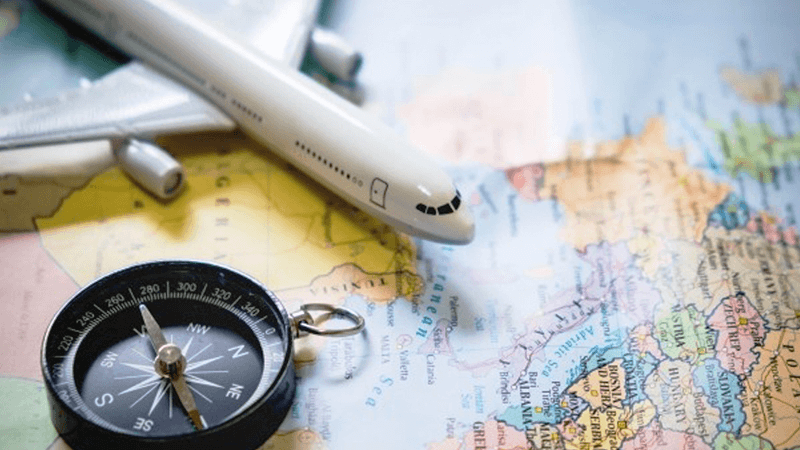Whether you are new to corporate travel or an experienced campaigner there are plenty of things to consider when planning a business trip.
From a work standpoint, you have to understand the reasons and priorities for the visit and the benefit it will bring to the company.
And, of course, there is the logistical side of things. If you are away for a long trip to the capital, for instance, serviced apartments in London can help with choosing accommodations and offer more comfort than a budget hotel.
Taking into consideration the price and convenience of the lodgings to make sure you are close enough to conventions or offices is one aspect, here are some other things to consider when planning a business trip.
1. Travel arrangements
The accommodation is the only area to consider, of equal importance is travel arrangements, so first and foremost whether it is your name being put down or a travel manager arranging on behalf of someone else make sure you are familiar with your company’s corporate travel policy.
It is not just the travel to a country or a venue to think about, but also how will you get around different places when on the trip itself. Make sure you have flights and cars booked well in advance when possible to help things run smoothly and also take out added stress and anxiety caused by travel.

Think too about other work essentials, such as whether the trains, planes, or boats you will be traveling on have Wi-Fi to allow you to work on the move or plug sockets to charge phones and laptops.
In October 2024, it was reported around four in 10 businesses are aiming to ramp up business travel as the world continues to move towards pre-pandemic ways of working, so it has never been more important to be on the ball with your travel arrangements.
2. Itinerary
They say chance favors the prepared mind, and certain preparation is key for the smooth running of a business trip.
A comprehensive itinerary, whether for a single day, a week, or longer, is essential. Knowing what is going on each day allows you to use your time accordingly, throw in any downtime and react to unforeseen circumstances in a more timely manner.
Furthermore, a good itinerary allows a better understanding of the likely costs involved with the trip, which means excitement can build ahead of your journey and relieves some of the stresses around work travel.
3. Budget
Nearly everyone in the UK, not just businesses, has been affected in some way by the cost-of-living crisis, with inflation still at 10.7 percent as recently as November.
So, rarely has it been so important to be meticulous with your budget when planning a business trip, and that does not just involve taking into account the cost of travel and accommodation.

There are considerations needed for food and refreshments, any potential entertainment for clients, other necessities that may arise, and replacements for any damaged or lost technical equipment such as a laptop or phone chargers.
Before heading off on your business trip, make sure you have adequately budgeted for the expense of your visit.
4. Health and Safety: Taking Care of Yourself
It is important to remember that health and safety should be the primary concern. By taking steps to protect your physical health, you will be able to optimize your productivity while at work and remain alert throughout the trip.
Before you go on any business trip, it is important to research the health concerns in the area where you are traveling and take precautions accordingly. Check if there are any national or international vaccinations that might be required before entering the country. Also, research local medical facilities so that medical help can be obtained quickly in case of emergencies.
When traveling with a laptop or other electronic items, strategies must be developed in order to guard against theft or loss of valuable information.
Security measures such as password protection should be established wherever possible to ensure that confidential data remains secure. Also, obtain detailed information from your hotel about safety precautions such as locks and alarms for rooms and security systems within the property’s premises.
It is also essential to pay attention to physical well-being during business trips by paying special attention to diet and exercise plans. Eating healthy meals always is key but when traveling this can prove difficult due to unfamiliarity with the local cuisine or limited choices at airports or hotels.

To accommodate dietary needs, make sure not only to stock up on snacks from home but stocking up on some non-perishable foods as well which do not require refrigeration.
Additionally, take time during each day of travel for physical activity such as yoga or light stretching; this will help manage fatigue which can easily accumulate while sitting for hours every day in airplanes or trains between meetings. Remember that remaining safe and being alert is crucial when engaging in international business activities so plan accordingly and stay informed!
5. Post-trip Reflection
Although the primary goal of it is to attend meetings and conferences for the purpose of generating more business, it’s important to take some time afterward to reflect on your experience. Even if the trip was a success, it’s invaluable to have an honest discussion about potential areas for improvement as well as what worked well.
Once you’ve returned from your trip, assess how successful it was in terms of your overall goals. Begin by reflecting on the strength of the meeting or conference and analyze how the opposition received your ideas or propositions. Consider any feedback you received and take into account any new contacts you made.
It’s also important to appraise if conversations were conducted in a professional manner if any items were left unresolved and whether any opportunities were missed during the course of events. If there were any miscommunications that hindered or delayed progress in relation to goals set out before leaving, make sure they are identified and addressed as soon as possible.









